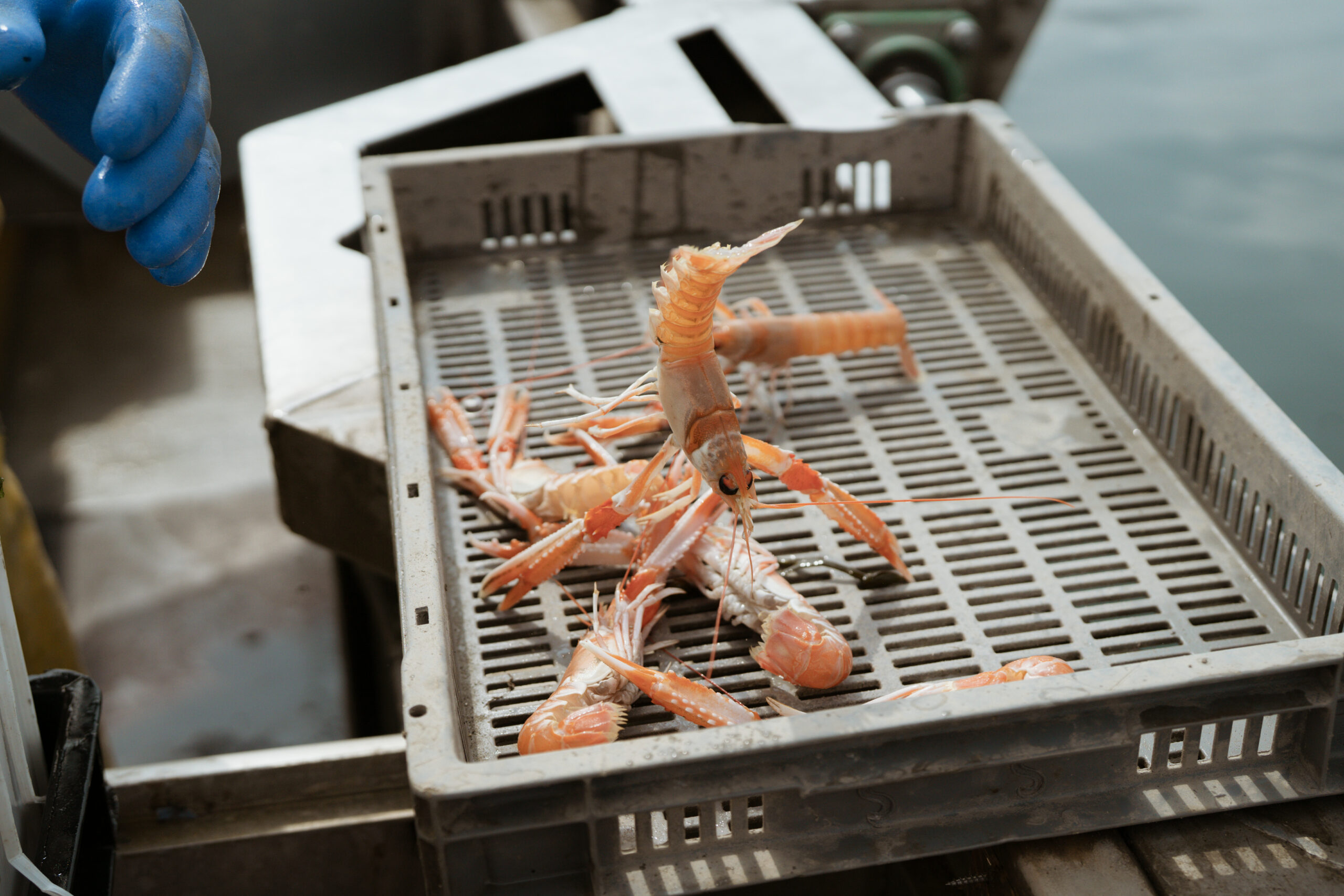Angus MacIntosh
‘Fàilte gu fearran air balaich an iasgaich…’
“Fishing is a great job. It’s also a job which gives you the option to stay at home and get a good sun tan!”
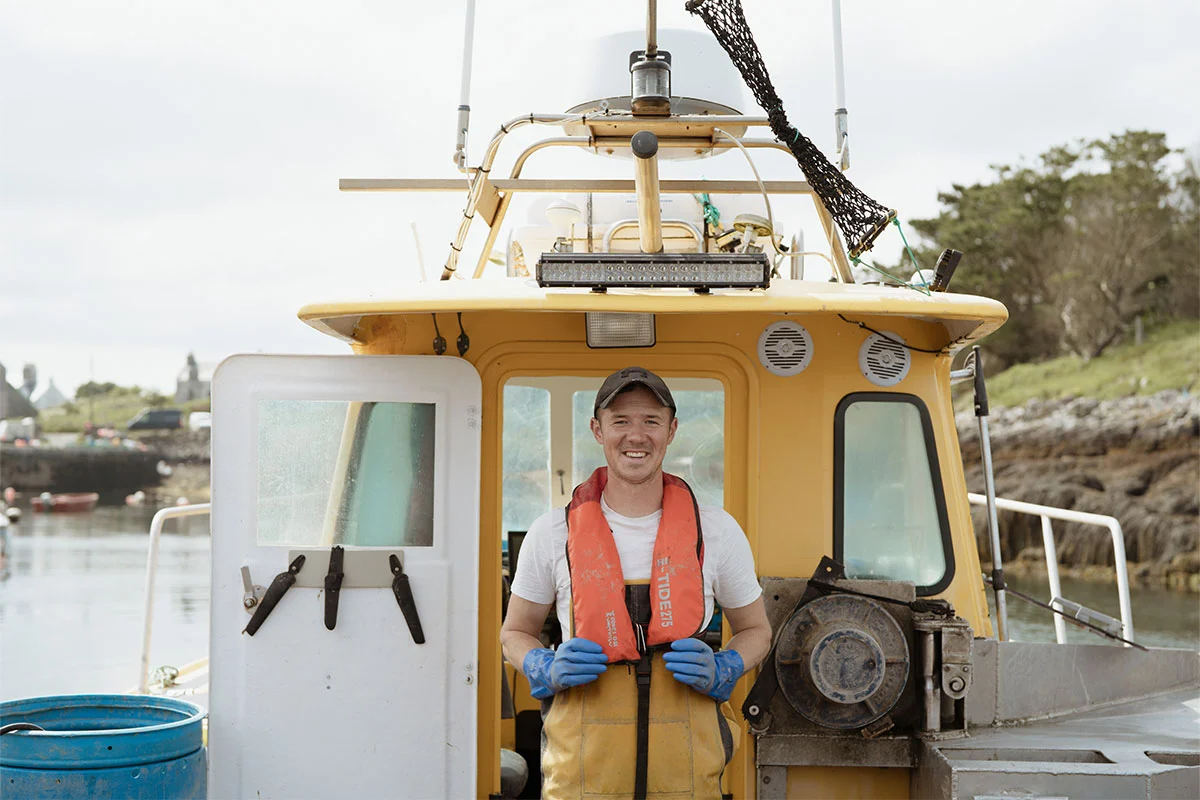
Growing up in a place which is surrounded by water has, without a doubt, shaped the life of your next Uist Beò contributor, Angus MacIntosh.
“Fishing has always been something I’ve wanted to do. We’ve always had boats and dinghies out the front of the house. When I was small I was always playing with wee toy boats.”
After leaving school, Angus learnt his trade of floor laying. However, soon after qualifying he left his tools behind for the high Uist seas to work with his uncle, Hector Shepherd.
“It was my uncle who taught me everything I know about the waters around here. In the summer when I was 16, we’d be out every day and then even in the evenings we’d be constantly chatting about fishing.
He made everything seem so easy and straightforward, so I decided to get my own boat.”
For Angus, it’s in the blood. Aside from his uncle, his grandfather was also a fisherman, fishing for lobsters and crab off the west side of Uist. Angus has come a long way since his days playing with the ‘wee toy boats’.
He’s now out fishing for crab, lobster and prawn. He’s the proud owner of a 10 meter Cheetah catamaran and he’s been joined by Christopher Campbell on this ship.
He also has a contract with the local fish farm to supply Wrasse – a fish which cleans the lice from Salmon. “That contract came from chatting to a guy in the pub,” Angus told us. Lesson learnt; it’s important to go to the local establishments if you want to keep your finger on the pulse!
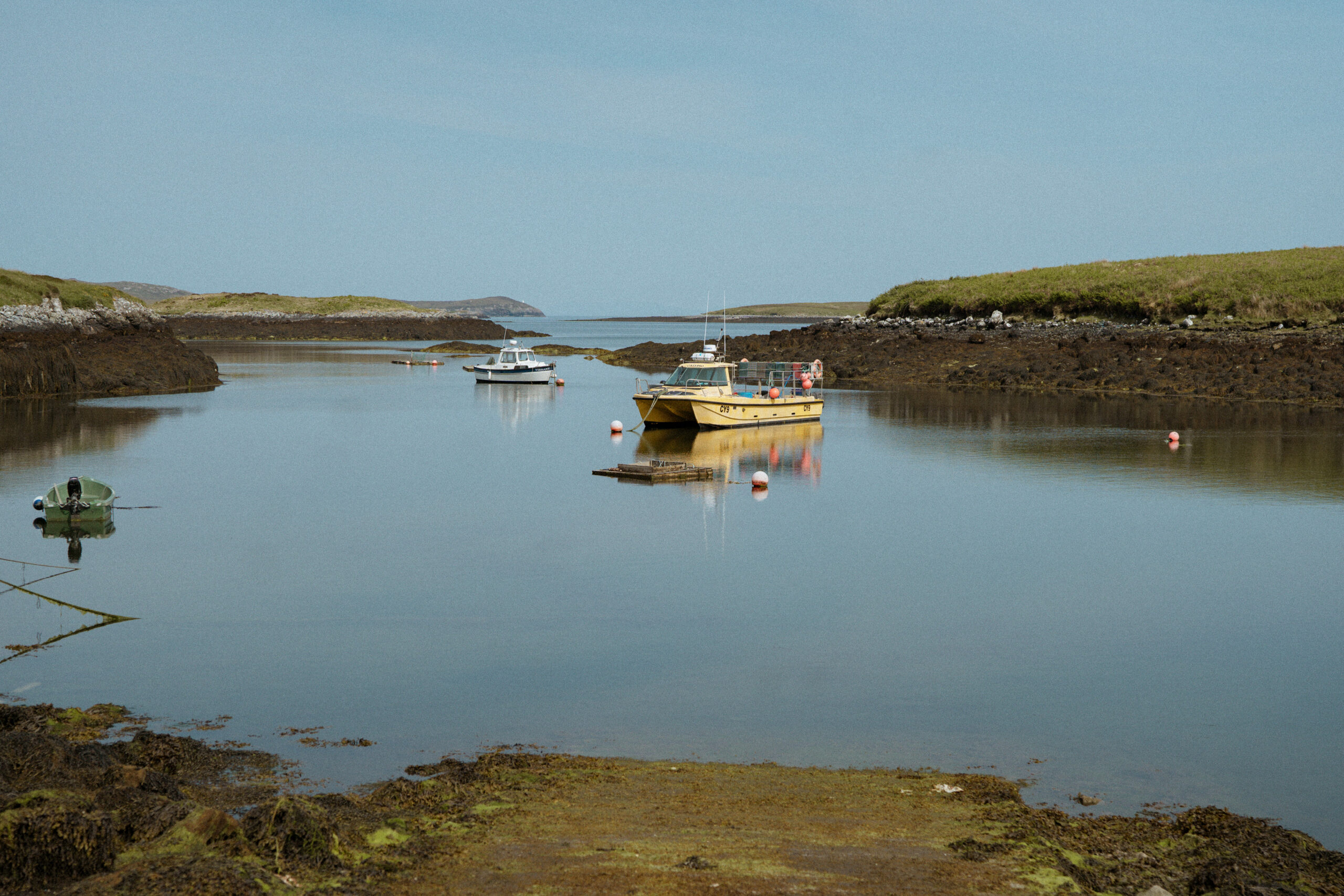
“The scary part of it all was buying the second boat. I took out a lot of money in a loan and with the weather we get here, having to constantly make a weekly income and cover all the costs and then to consistently pay a wage can be a tough thought. The money part is scary, but going out to sea is what I want to do.
Even though the Uist seas have kept food on the table throughout the generations, Angus mentions that things have changed from his grandfather’s day to his own, weatherwise.
“Maybe the effects of global warming are hitting us.
My grandfather used to be desperate for it to be blowing a gale on a Saturday so he could have a day off, but not anymore! Sometimes you’re in the shed more days than you’re out at sea and if you are out, you’re battering against wind and rain in mid June and July – which sounds ridiculous.
I feel that maybe in November and December the weather is really not that bad. Then March arrives and you’ve got snow and wind.”
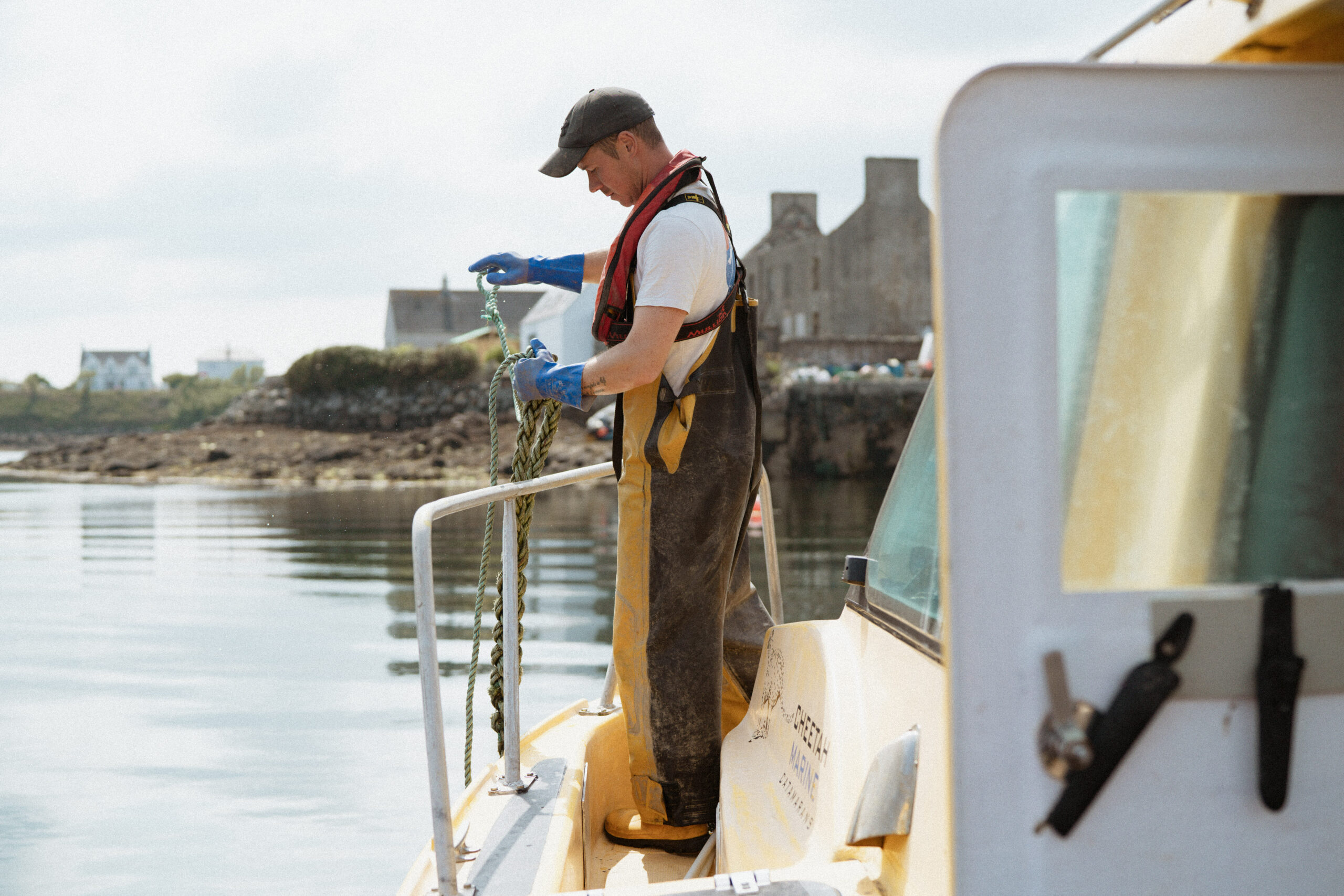
Not only that, but aside from battling the elements in all seasons there is also a high cost for taking to the waves for a living.
“You have to learn to be wise with your money, especially through the winter, because it can be a long winter.
Fishing can be an expensive business and the to-do list is never short. Learning takes time and there’s a lot to do. There’s a lot to know and there’s a lot to buy. Like I say, for me it was all down to my uncle for getting started. There are also plenty of people around who are willing to help you out with any advice or help. People are good to each other here.”
For many of the fishermen of the islands, most of the local catch is exported to feed the socialites of France and Spain. Although the Mediterranean is famous for having fish and shellfish on the menu, most of that catch comes from the west coast of Scotland.
Although the markets change regularly, at the moment, local fishermen can expect to make £14 per kilo for Lobster.
The bigger local companies then transport shellfish off the islands directly to Europe where the final customer can expect to pay €30 or €40 for a single Lobster.
These companies also take care of the paperwork that’s involved in exporting the product.
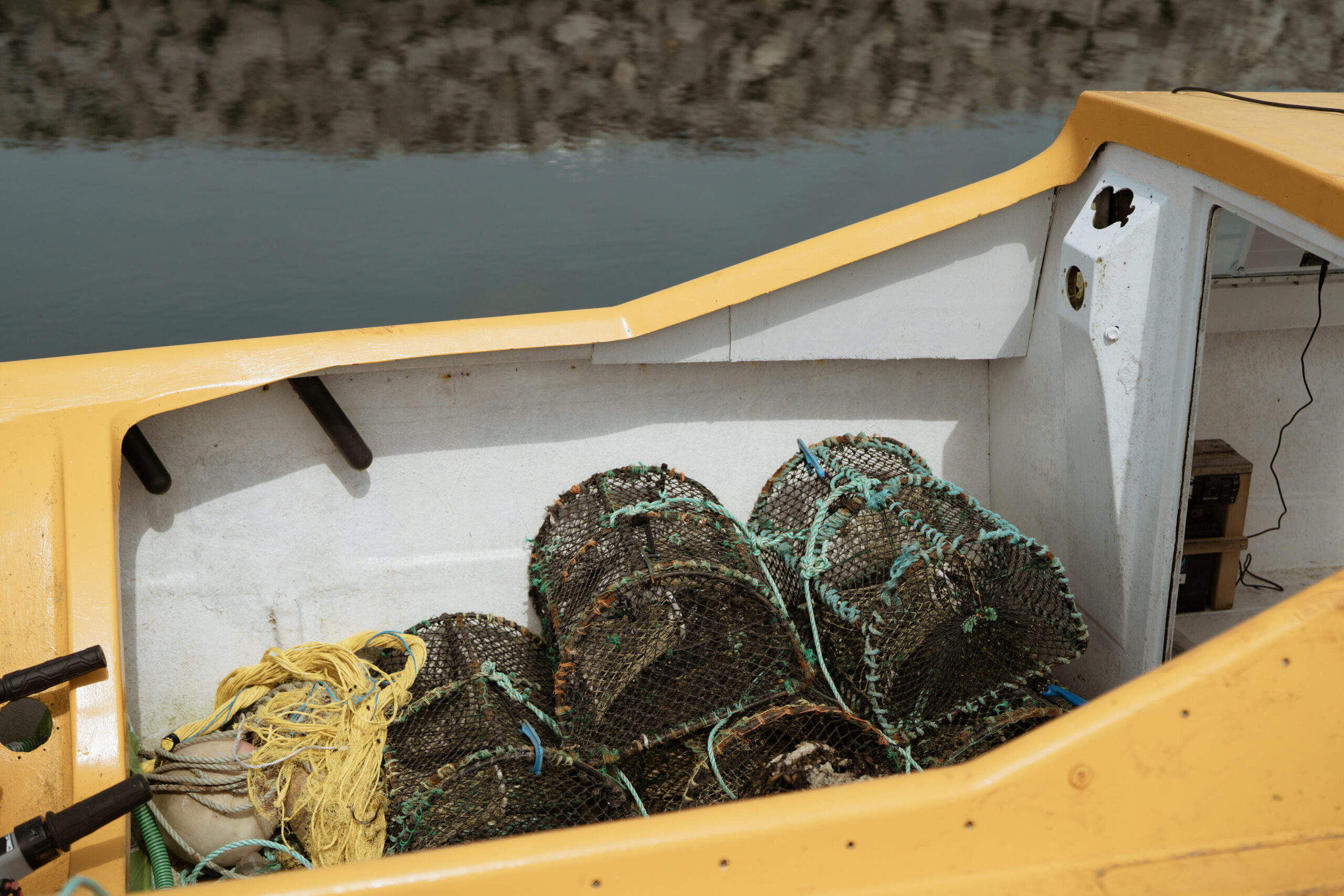
“I’ve never really got my head around it. You could be saving so much money in transport and I just find that the stuff here is so much better than what is sold here from abroad. In the shops, you get shrimps and then your crab-meat-stick things, they are soo processed and filled with rubbish. You can get fresh crab out on the west side which is just amazing.
It’s just a mad chain of one person, to another person, to another person and then another person. It’s just a pity that you can’t sell more locally and to the rest of the country. There could be a massive profit before it gets to France or Spain and you could be keeping it within Scotland and maybe to England too.
I’d love it if there was more interest here to sell crab and lobster, but buyers are always looking to get the best price possible for us. At the moment, that best price is in France and Spain. That’s where the demand is.
In some final remarks about life as a fisherman, Angus finishes off by encouraging people to be part of ‘da crew’.
“There are plenty of opportunities for people to try it out. There are boats looking for crew all the time.
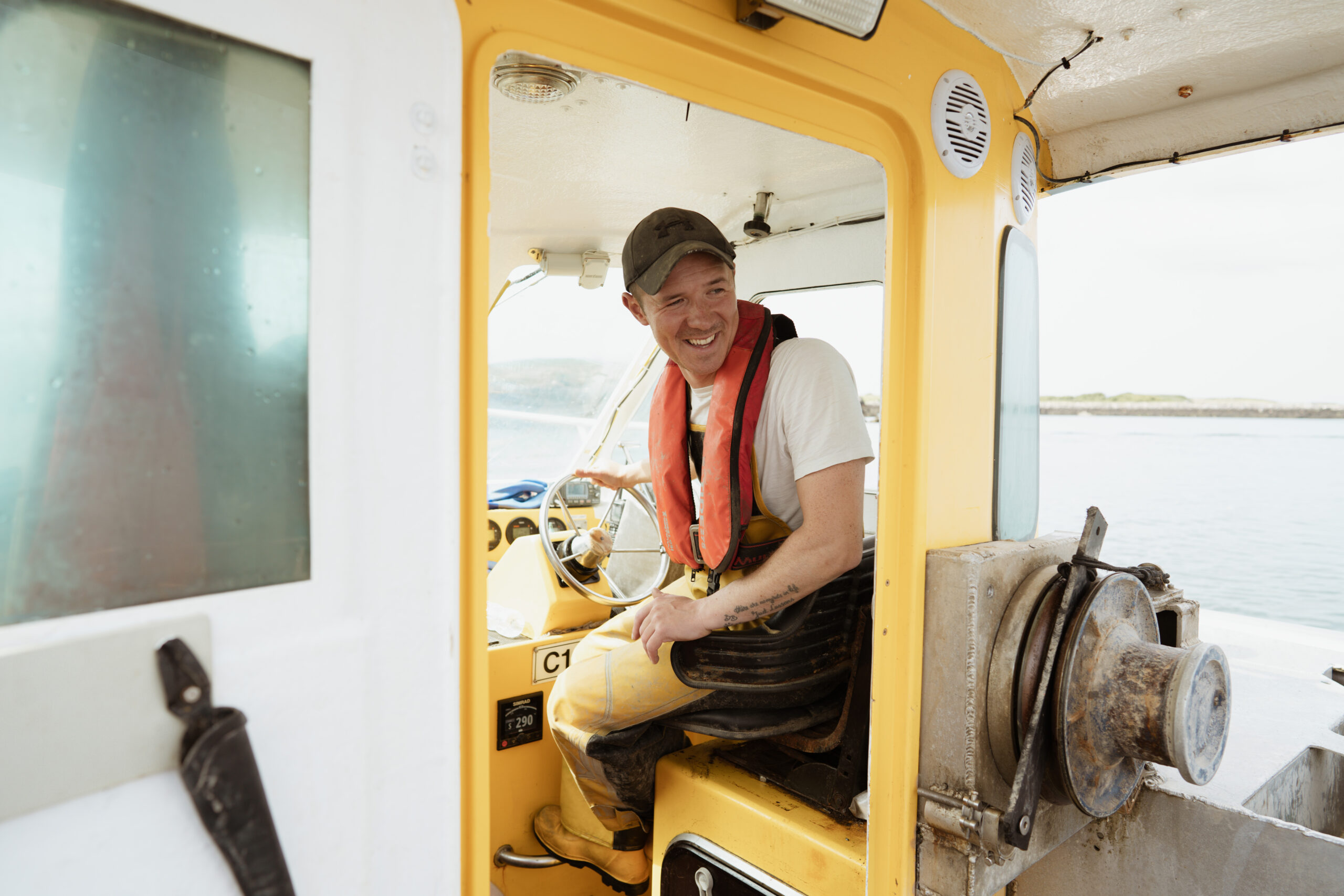
I would never tell someone to go and buy a boat and give it a go straight away, instead I would tell them to at least do a season or two with somebody with knowledge. You pick up skills, daily. Then just see if it’s for you.
There’s no classes to go to but there’s always support and people with knowledge here that can direct you when you’re going out fishing and doing it for yourself.”
